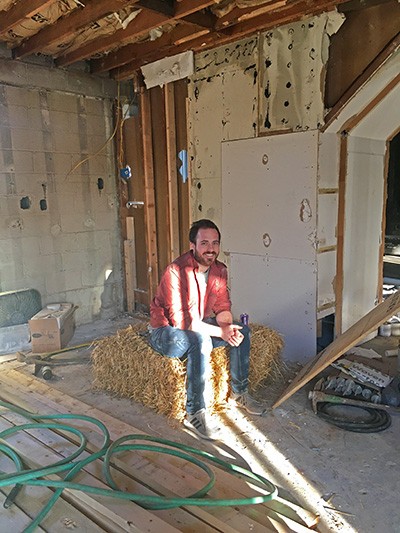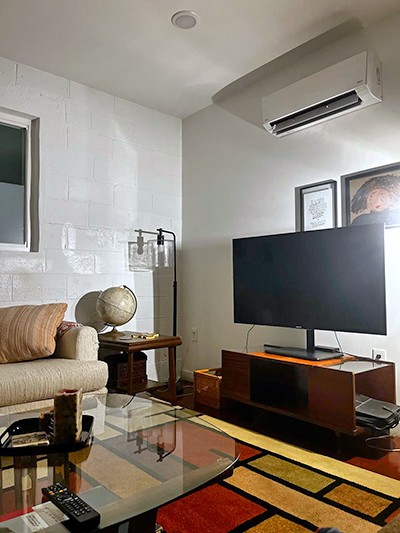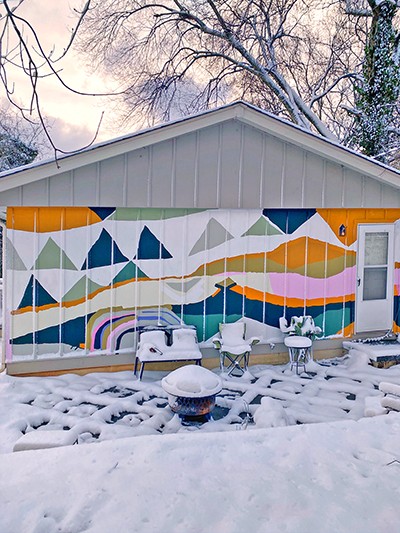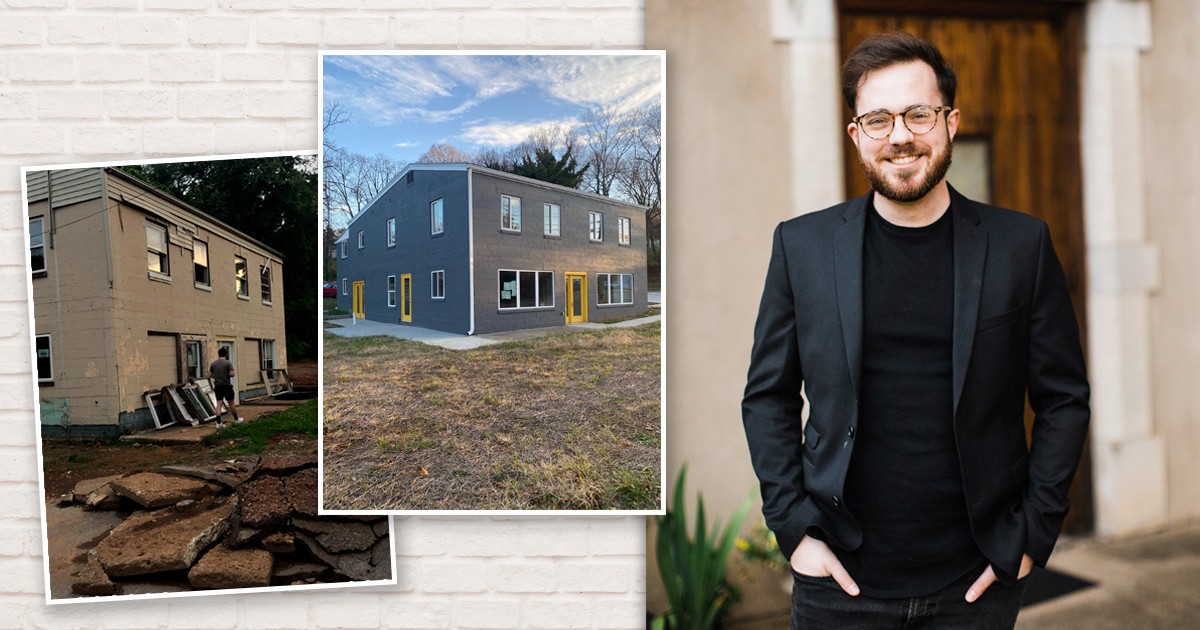In 2011, when Drew Harper graduated from high school in his rural hometown of Paris, Illinois, he just wanted to “get out.” College appeared to Drew as a shiny object in the distance—the cure to all his teenage angst. With a laser focus on the greener pastures ahead, he was convinced that Paris had nothing to offer him anymore.

One Small Act …
Drew began his education at Johnson University in the rolling hills of Knoxville, Tennessee. He double majored in Bible and theology, and pastoral care and counselling.
“I dove head-first into my classes,” he states. “I enjoyed deepening my knowledge of Scripture while preparing for a career in mental-health care.”
But as he studied, Drew began to realize that the Bible was less of a text he needed to master and more of a life he wanted to live.
Over the course of his studies, Drew noticed a common thread among friends and instructors alike. “I realized that many Christians thought about the earth the same way that I thought about my hometown—small, unimportant and insignificant when compared to their final destination, heaven.”
This observation, coupled with studying the Bible, led to a change in his view of the environment.
“What I saw in Scripture showed me that God cares deeply for this world,” he says. “I began to pay more attention to my physical environment.”
Drew started to pick up trash wherever he saw it on campus. That small act blossomed into his desire to build and beautify what he calls “place”—where we spend our time and live our lives.
… Leads to an Epiphany
After he concluded his studies in 2014, which included a semester at Oxford University in England, Drew spent nine years working in the mental-health field. He noticed how mental-health problems worsen when people disconnect from others, due in part to the built environment—houses, sidewalks, streets, parks and transportation infrastructure.
“Our ‘places’ impact us,” he explains. “And we have unwittingly created spaces that foster isolation. We prioritize cars instead of buses or walking, personal entertainment systems instead of community theatres, and spacious houses with big lawns in the suburbs instead of living more closely connected with our neighbours.”
We often assume these building blocks of our places are “just the way it is.” But can we change the way it is?
Drew believes we can. Starting with him.

Answering a Prayer
In the last few years, Drew’s career focus has shifted from mental-health care to full-time real estate development—buying older structures and renovating them.
“I have adopted the practice of using the word ‘homes’ instead of ‘apartments’ or ‘housing,’ ” he says. “It helps us remember that there are many types of homes, and that you don’t need to be a homeowner to live in a home. It reminds us that everyone has dignity.”
In Knoxville, where he currently resides, Drew interacts with a few of his city councillors (and once or twice, the mayor) about pro-housing issues. He is also part of a newly forming group that will advocate for housing in a more organized way.
Intertwined with all of this is something called “place-making”—the idea that we can work to make our physical environments better. Though he’s changed directions professionally, the goal of Drew’s work remains unchanged: to help people live happier, healthier lives.
“For me,” he says, “the job of place-making is inspired and informed by the life and love of Jesus. ‘The Word became flesh and made His dwelling among us’ (John 1:14). In Jesus, God demonstrates that the physical world matters. The Lord’s Prayer implores God’s kingdom come ‘on earth as it is in heaven.’ In place-making, we can answer the Lord’s Prayer by working to create environments that encourage connection, by bringing neglected buildings back to life, by investing in making our neighbourhoods healthier, more beautiful places.”

On Earth as It Is …
“Get creative,” says Drew. “The best idea for your space is probably one that only you can imagine.”
He gives a church next to his favourite coffee shop as an example.
“It installed and maintains a small trash can on their property. There is no nearby public garbage bin, and the coffee shop generates a lot of waste and foot traffic. The church’s bin fills a need, creates a cleaner environment, and encourages us to walk and interact with each other.
“Many place-makers use the phrase ‘think big, work small,’ ” says Drew. “Creating a great place doesn’t come from the top down, but rather through a series of small steps that normal people can do over and over. Find the next smallest improvement you can do, and then repeat the process.
“Let’s join in making earth a bit more like heaven.”
Little Things Add Up
Unlike Drew Harper, not everyone is called to place-making as their vocation. But that doesn’t mean we should rely on professionals to make our places better. Here are a few ideas that anyone can do to make a difference:
• Substitute a car trip with a walk or bike ride. Walking helps us notice more details of our spaces.
• Talk to someone you wouldn’t normally talk to. Good places are made up of a diverse group of people. No matter how large or small your community is, you can grow by interacting with people you didn’t know yesterday.
• Consider visiting a different church or community organization than you would normally attend. Try exploring somewhere within walking distance of your home or workplace.
• Paint something! Whether a wall, fence or door, paint is the most economical way to enliven a space. Indoors or outdoors, solo or an organized group activity, painting demonstrates that you care about a place.
• Plant flowers. Gardening is an excellent way to add beauty and make a place “home.”
Photos: Courtesy of Drew Harper






Thank you, Drew, for opening my eyes to new horizons, and the opportunity to write this story!